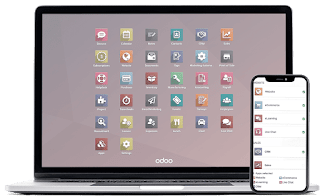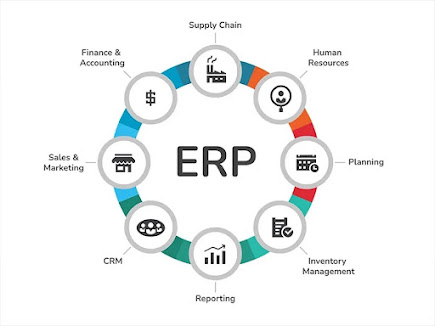Boosting Financial Efficiency: Exploring ERP Accounting Software in Kuwait
In today's fast-paced business environment, companies in Kuwait are constantly seeking innovative solutions to streamline their financial operations. Enter ERP (Enterprise Resource Planning) accounting software, a powerful tool designed to enhance productivity, accuracy, and efficiency in managing financial data. In this blog post, we will delve into the world of ERP accounting software, its benefits, and address some frequently asked questions for our audience in Kuwait.
Frequently Asked Questions (FAQs)
What is ERP accounting software?
ERP accounting software is a comprehensive financial management system that integrates various accounting functions within a single platform. It automates and streamlines financial processes, including general ledger management, accounts payable and receivable, budgeting, financial reporting, and more. This centralized system allows businesses to gain better control over their financial operations, reduce errors, and improve decision-making.
What are the advantages of using ERP accounting software?
Enhanced Efficiency: ERP accounting software automates repetitive tasks, such as data entry and report generation, saving time and effort. It eliminates manual errors and reduces the need for duplicate data entry, leading to increased productivity.
Real-Time Insights: By integrating various financial functions, ERP accounting software provides real-time visibility into financial data. Businesses can access accurate reports and analytics, enabling them to make informed decisions promptly.
Cost Savings: The automation and efficiency provided by ERP accounting software can result in cost savings. Streamlined processes reduce the need for additional staff, while accurate financial data helps identify areas for cost optimization.
Compliance and Security: ERP accounting software ensures compliance with financial regulations and standards. It offers robust security features to protect sensitive financial data from unauthorized access.
Can ERP accounting software handle multi-currency transactions?
Yes, ERP accounting software can handle multi-currency transactions, which is particularly beneficial for businesses in Kuwait operating globally. It allows for seamless currency conversions, ensuring accurate financial records and facilitating international trade.
Can ERP accounting software integrate with other business systems?
Absolutely. ERP accounting software is designed to integrate with various business systems, including CRM (Customer Relationship Management), inventory management, payroll, and more. This integration eliminates data silos, improves data accuracy, and enables a holistic view of business operations.
Is ERP accounting software suitable for small and medium-sized businesses (SMBs)?
Yes, ERP accounting software is suitable for SMBs in Kuwait. In fact, it can be highly advantageous for SMBs as it provides the tools and functionality needed to streamline financial processes. Many ERP accounting software solutions offer scalable options, allowing businesses to start with basic modules and expand as they grow.
How long does it take to implement ERP accounting software?
The implementation time for ERP accounting software varies depending on the size and complexity of the business. It typically ranges from a few weeks to several months. Factors such as data migration, customization, training, and system testing contribute to the overall implementation timeline.
Conclusion:
ERP accounting software offers numerous benefits for businesses in Kuwait, enabling them to optimize financial operations and improve overall efficiency. By automating tasks, providing real-time insights, and ensuring compliance, ERP accounting software empowers organizations to make informed decisions and stay ahead in today's competitive market. Whether it's a small startup or a large enterprise, embracing ERP accounting software can be a game-changer in achieving financial excellence.



Comments
Post a Comment